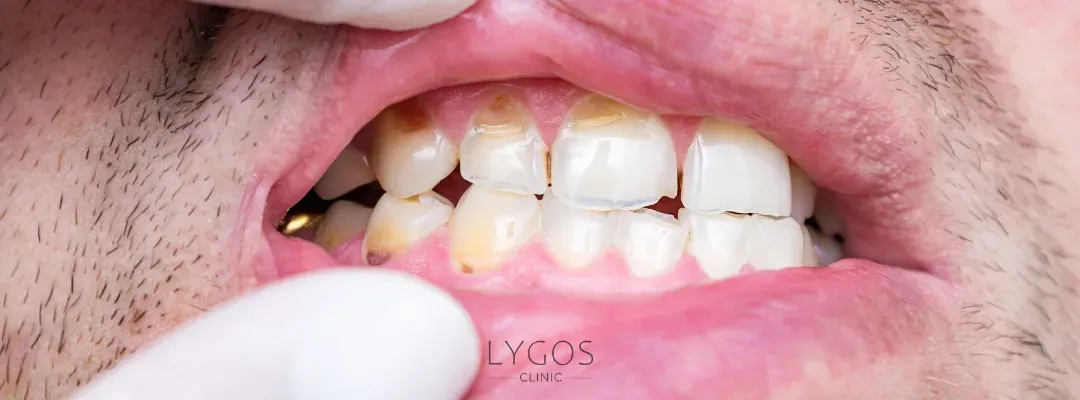What is Fluoride? | Sodium Fluoride | LYGOS 2025

Fluoride: Uses, Benefits & Side Effects
Fluoride is an element found in nature, naturally occurring in water, soil and plants. Known for its positive effects on dental health, fluoride helps remineralize tooth enamel, contributing to the prevention of early decay. However, because excessive amounts of fluoride can cause health problems, fluoride levels in products such as toothpastes and mouthwashes have been carefully regulated. Thanks to their low fluoride content, these products provide significant benefits to dental health. It should be noted that children in particular need to pay attention to their fluoride intake. A balanced intake of fluoride is beneficial for overall health.
What is Fluoride?

Fluoride is a mineral found naturally in soil, water and air that supports dental health and plays an important role in strengthening tooth enamel and preventing cavities. Found in many dental care products, it is a critical component in preventing tooth decay.
Fluoride forms a protective layer on tooth enamel, reducing damage caused by acids and bacteria, and also helps to repair damaged enamel. While proper and controlled use enhances the benefits of fluoride, excessive intake can lead to white or brown stains on teeth. This can lead to problems such as dental fluorosis. Therefore, the balanced use of fluoride is of great importance for dental health.
What Contains Fluoride?

Fluoride is known as a mineral that is naturally found in water sources, foods and various supplements. Due to its positive effects on dental health, it is commonly used in toothpastes and mouthwashes. When taken in the right amount, fluoride is an effective aid in preventing tooth decay.
Fluoride is found especially in seafood such as tuna, salmon and sardines. The tea plant also absorbs fluoride from the soil in which it grows, making it a rich source of fluoride. In addition, some fruits and vegetables such as grapes, apples, spinach and cabbage are among the foods that contain fluoride. These foods can also be used to treat some health problems such as osteoporosis. So, what contains fluoride?
Water Sources Fluoride is found in natural water sources and has a positive effect on the dental health of children, especially during development. Regular and proper fluoride intake helps prevent tooth decay.
Animal Foods Fluoride, which is found in the internal organs of animals and in drinking water depending on their dietary habits, can also be found in eggs. Sea water also contains a certain amount of fluoride. Fish such as tuna, salmon and sardines are also sources of fluoride.
Toothpastes and Oral Care Products: Fluoride in toothpastes and mouthwashes strengthens tooth enamel and helps prevent cavities.
Black and Green Tea: These teas absorb fluoride from the soil in which they are grown and become a source of fluoride.
Fruits and Vegetables Depending on environmental conditions, foods such as spinach, cabbage, grapes and apples, which receive fluoride from the soil, also contain fluoride.
However, since excessive consumption of fluoride can cause staining of the teeth, it is very important to use it carefully. Balanced and controlled fluoride intake contributes greatly to dental health.
Is Fluoride Harmful?

Fluoride is a mineral that is essential for maintaining dental health, and when taken in the right amount, it strengthens tooth enamel and prevents the formation of caries. However, in case of excessive consumption, it can lead to various negative effects. Therefore, controlled use of fluoride is of great importance. The harms of fluoride are as follows:
Dental Fluorosis Excessive intake of fluoride can cause dental fluorosis, which manifests itself as white, yellow or brown spots on tooth enamel. This can negatively affect the aesthetic appearance of the teeth.
Skeletal Fluorosis Consuming high amounts of fluoride over a long period of time can trigger skeletal fluorosis, which can lead to bone structure deterioration and fragility in adults. This is a serious threat to bone health.
Acute Poisoning Symptoms Excessive intake of fluoride can cause acute poisoning symptoms such as nausea, vomiting and diarrhea. These symptoms indicate the toxic effects of fluoride on the body.
Negatively Affecting Iodine Absorption High fluoride intake can negatively affect the body’s absorption of iodine, preventing the thyroid gland from functioning properly. This can lead to hormonal imbalances.
Impairment of Organ Functions In individuals with kidney or liver disease, excessive fluoride intake can negatively affect the function of these organs, which can jeopardize overall health.
In conclusion, while fluoride makes important contributions to dental health, excessive consumption can lead to various health problems. Therefore, it is important to use fluoride in a balanced way and seek expert advice when necessary.
What Does Fluoride Do?

Fluoride is a mineral naturally found in water supplies and plays an important role in maintaining dental health. Sometimes added to drinking water, fluoride is used in public health practices because it helps prevent tooth decay.
Fluoride strengthens tooth enamel and increases its resistance to cavity-forming acids. In this way, it prevents tooth decay without being aware of it in daily life. This protective effect on the teeth is especially beneficial for children in the developmental age, as the healthy development of teeth is of great importance during this period.
In addition, fluoride promotes the remineralization of tooth enamel, which helps to repair damaged areas. Fluoride increases the durability of our teeth, allowing us to have a healthy smile. While fluoride supports dental health when taken in the right amount, it should be used in moderation, as excessive intake can have negative effects. You can click on the link to follow our social media content.


